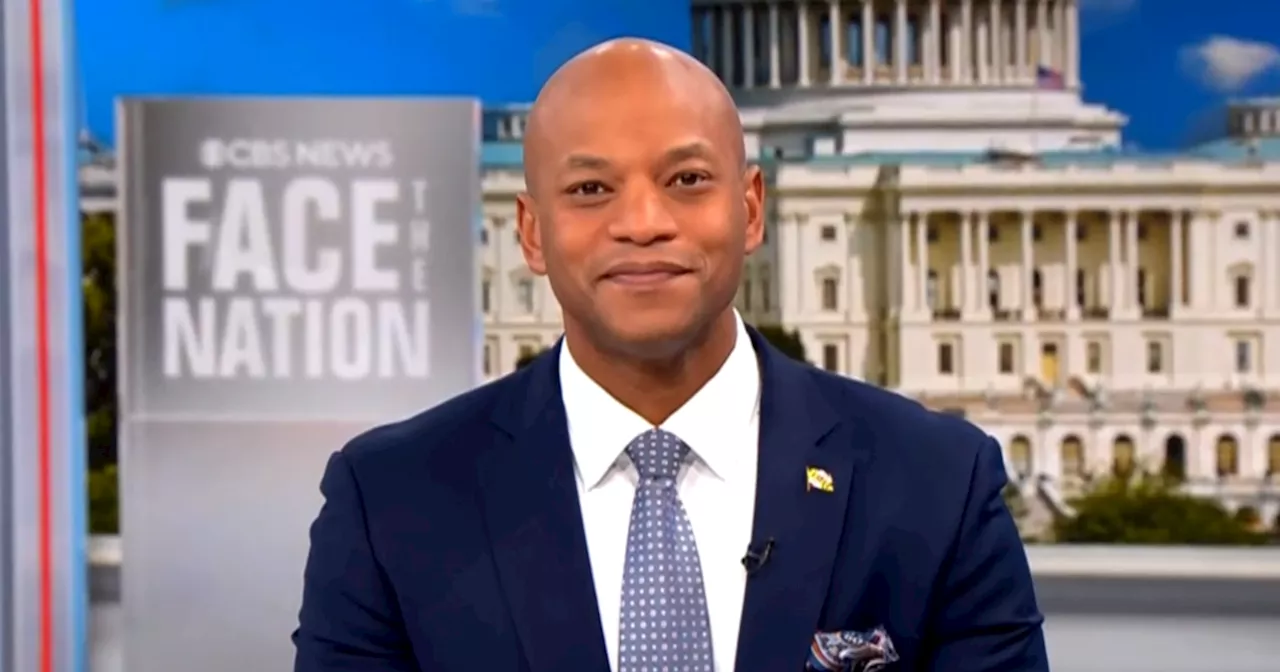Politics
Maryland’s Moore Advocates for Redistricting Amid Political Pressure

Maryland Governor Wes Moore announced the establishment of a commission to explore mid-decade redistricting, aiming to address political dynamics in the state. This move comes as he responds to recent redistricting efforts in other states, notably those led by Republicans. During an interview on CBS’s “Face the Nation,” Moore emphasized the need for Maryland to actively participate in the redistricting conversation, stating, “We’re not just going to sit on our hands because Donald Trump tells us to.”
The commission’s formation is a strategic response to the current political landscape, particularly given that Maryland holds a significant Democratic majority with eight of its nine congressional seats already occupied by Democrats. Moore’s initiative seems aimed at targeting the single Republican-held seat located in the eastern part of the state, a move he defends as necessary to maintain competitive fairness.
In detailing the commission’s purpose, Moore highlighted the importance of engaging with Maryland residents and ensuring the process is representative. He compared Maryland’s approach to those of states like Texas, Florida, and Ohio, where redistricting efforts have been perceived as attempts to bolster Republican power. Moore stated, “If other states are going through this process, it is imperative that we do the same.”
The commission is chaired by U.S. Senator Angela Alsobrooks, a close ally of Moore, and includes notable members such as Senate President Bill Ferguson, Maryland House Speaker Adrienne A. Jones, former Attorney General Brian Frosh, and Cumberland Mayor Raymond Morriss. Maryland law mandates that congressional maps are drawn by the state Assembly, where Democrats currently hold a supermajority. To advance the redistricting effort, Moore would need to convene a special session of the Assembly.
Ferguson has expressed reservations about the mid-decade redistricting plan, articulating concerns over potential legal risks and the timeline for implementing such changes. In a letter last month, he noted that “mid-cycle redistricting for Maryland presents a reality where the legal risks are too high.” He added that the recent success of Democratic candidates in elections indicates there is no need to manipulate the political system.
Despite these concerns, Moore remains resolute. He responded to Ferguson’s opposition by stating, “Fighting for democracy is never risky.” He underscored a shared acknowledgment of the political crisis created by Trump but emphasized differing views on the urgency of the response. Moore insisted that the state’s democratic integrity must be preserved, stating, “I’m not going to allow Donald Trump to determine whether or not Maryland follows this idea.”
As discussions surrounding redistricting continue, the implications of these decisions could significantly influence Maryland’s political landscape. The outcomes of the commission’s work may shape the state’s electoral dynamics well into the next decade, highlighting the ongoing tension between state and national political strategies.
-

 Science3 weeks ago
Science3 weeks agoInventor Achieves Breakthrough with 2 Billion FPS Laser Video
-

 Health4 weeks ago
Health4 weeks agoCommunity Unites for 7th Annual Into the Light Walk for Mental Health
-

 Top Stories4 weeks ago
Top Stories4 weeks agoCharlie Sheen’s New Romance: ‘Glowing’ with Younger Partner
-

 Entertainment4 weeks ago
Entertainment4 weeks agoDua Lipa Aces GCSE Spanish, Sparks Super Bowl Buzz with Fans
-

 Business4 weeks ago
Business4 weeks agoTyler Technologies Set to Reveal Q3 Earnings on October 22
-

 Entertainment4 weeks ago
Entertainment4 weeks agoMother Fights to Reunite with Children After Kidnapping in New Drama
-

 Health4 weeks ago
Health4 weeks agoCurium Group, PeptiDream, and PDRadiopharma Launch Key Cancer Trial
-

 World4 weeks ago
World4 weeks agoR&B Icon D’Angelo Dies at 51, Leaving Lasting Legacy
-

 Entertainment4 weeks ago
Entertainment4 weeks agoRed Sox’s Bregman to Become Free Agent; Tigers Commit to Skubal
-

 Health4 weeks ago
Health4 weeks agoNorth Carolina’s Biotech Boom: Billions in New Investments
-

 Top Stories3 weeks ago
Top Stories3 weeks agoFormer Mozilla CMO Launches AI-Driven Cannabis Cocktail Brand Fast
-

 Science4 weeks ago
Science4 weeks agoNorth Carolina’s Biotech Boom: Billions Invested in Manufacturing









